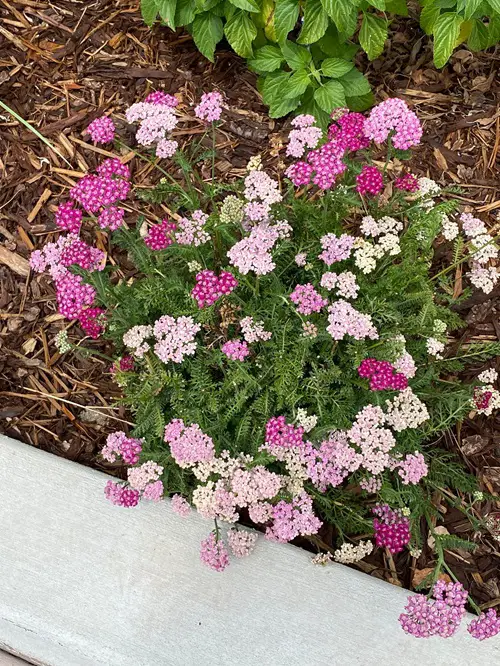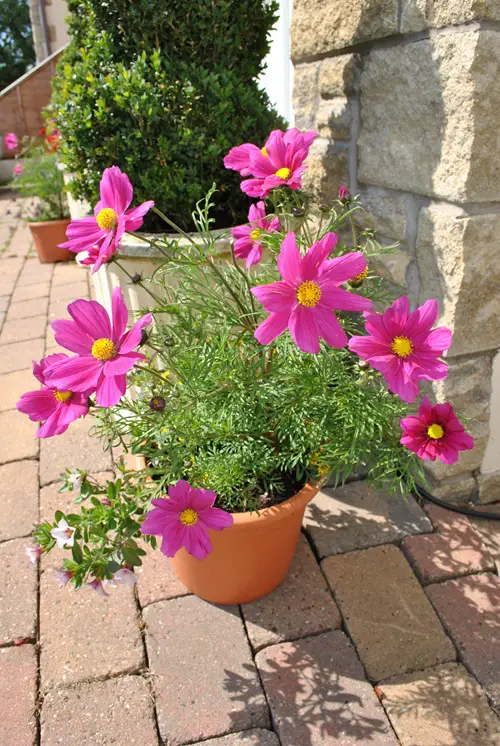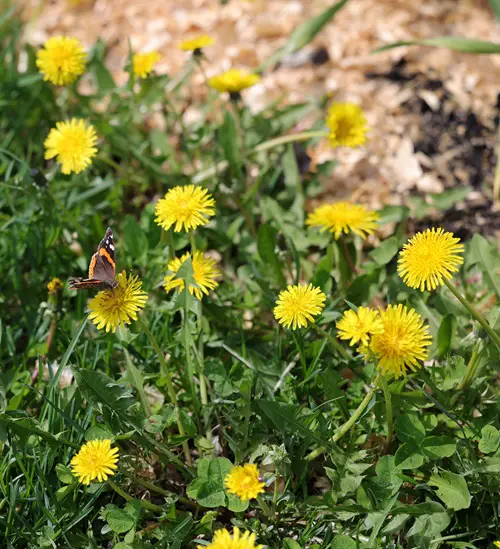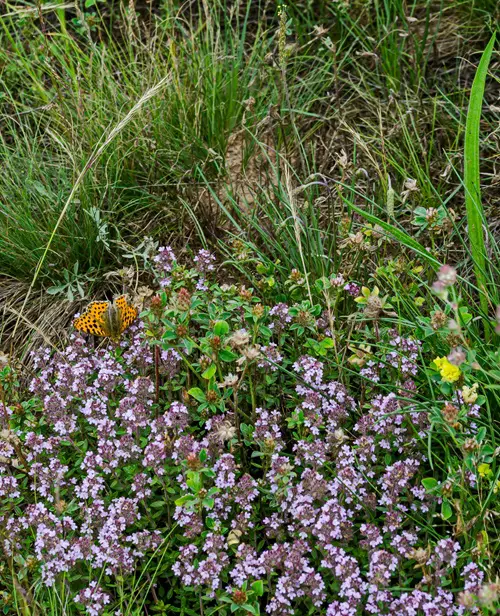These Weeds that Attract Most Pollinators are the best choices to benefit your garden and contribute to a balanced ecology!
Most of these plants grow in the wild, and some have ornamental value due to their aesthetics. To make your garden a hub of beneficial insects and pollinators butterflies, grow some of these weeds that attract the most pollinators but with care so they won’t invade other plants.
Weeds That Attract Most Pollinators
1. Butterfly Weed
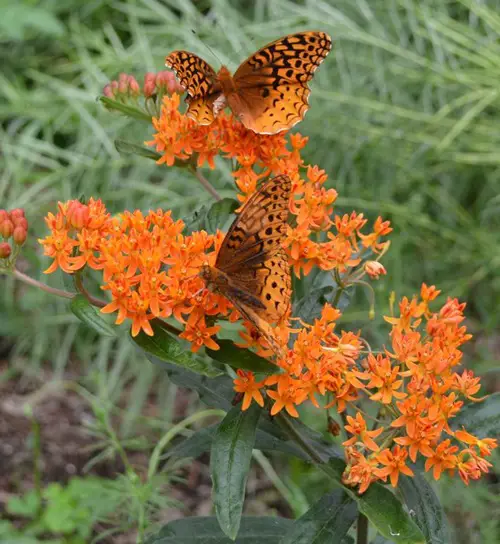
Botanical Name: Asclepias tuberosa
USDA Zones: 3-9
This bushy weed can live up to two years while blooming with nectar-rich flowers. Butterfly weed is loved for its flat-topped clusters of bright orange flowers, which are large in size. You will enjoy its blooming from May to September, when it attracts colorful butterflies and other pollinators.
The best part of growing this weed is that it can grow in almost any type of soil as long as you ensure that it gets full sun.
2. Joe Pye Weed
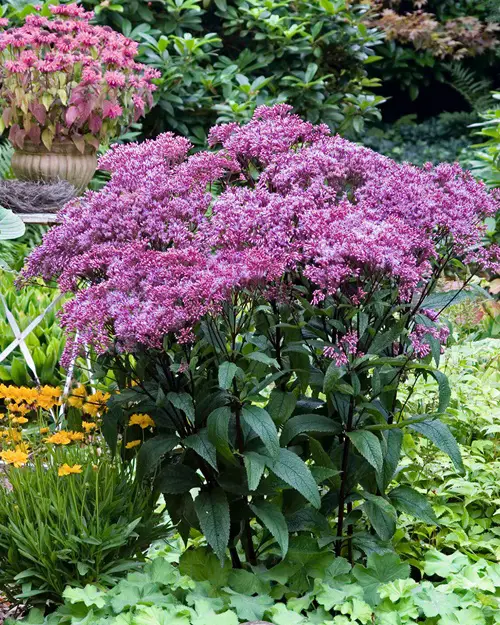
Botanical Name: Eutrochium spp.
USDA Zones: 4-9
Joe-Pye weed is a common weed found around wetlands and roadsides and is widely used in landscaping. Its flowers are often crowded with pollinators like butterflies, wasps, and bees, which feed on its nectar. If you happen to grow it or find it in the wild, try smelling its leaves—you will get a vanilla scent.
It grows best in moist soils; you can provide the same if you want to grow some in the garden. This plant can grow quite tall, so it’s best suited for larger garden spaces or as a backdrop for smaller plants.
3. Goldenrod
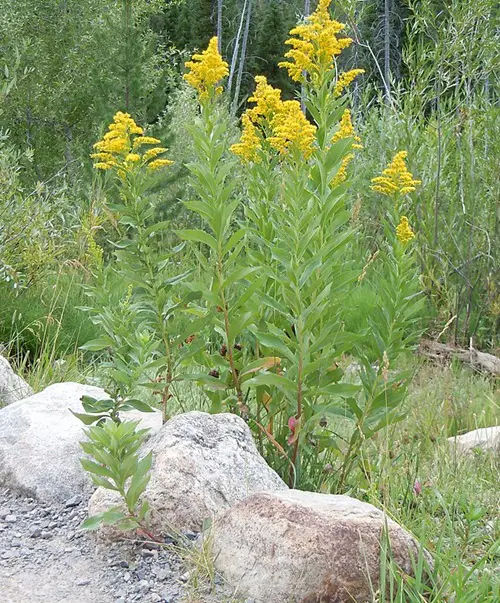
Botanical Name: Solidago canadensis
USDA Zones: 3-9
This beautiful yellow flower weed variety has finely toothed leaves with hairy undersides. Goldenrod blooms with petite flower heads in small clusters from July to October. Since this weed does not pollinate itself, nature has made its nectar and pollen-rich flowers a magnet for pollinators like flies, bees, wasps, and butterflies.
You will often see these weeds surrounded by many birds and animals that feed on the seeds and leaves.
4. Queen Anne’s Lace
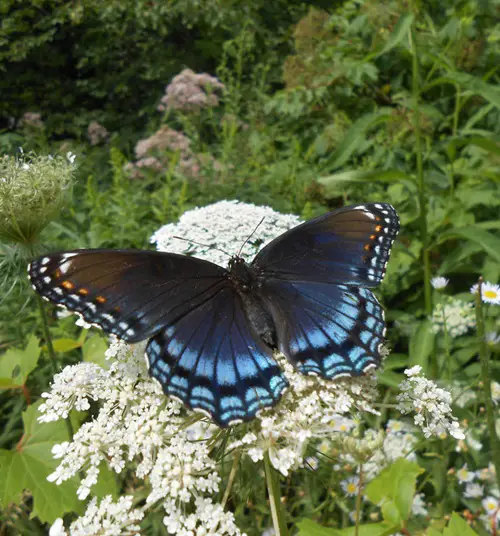
Botanical Name: Daucus carota
USDA Zones: 4-11
The strange name of this weed is attributed to its flower’s resemblance to the lace that was in trend during this British monarch’s era. These white flowers grow in flat clusters with purple centers. Queen Anne’s Lace attracts all kinds of pollinators, including bees, butterflies, and birds.
This weed grows in poor soils where most plants won’t survive, and this quality makes it an aggressive weed.
5. Purple Loosestrife
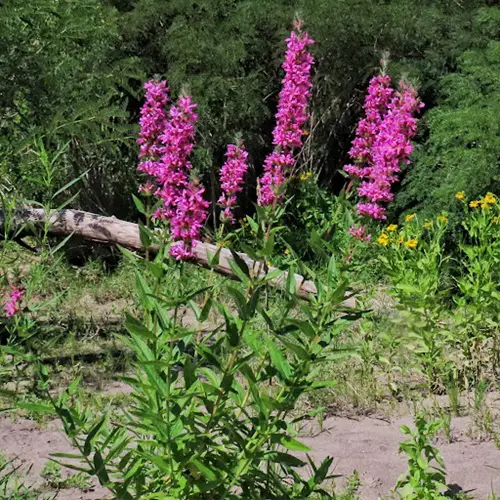
Botanical Name: Lythrum salicaria
USDA Zones: 4-9
This weed is widely found in wetland areas with its beautiful purple flower spikes. An easy way to recognize this weed is by its multiple woody stems that are square-shaped. In July, purple loosestrife blooms with beautiful six-petaled purple flowers with yellow centers. When it is in bloom, you will often find numerous insects, butterflies, and bees surrounding its flowers.
This plant grows best in full sun, but if you want to see its flowers in perfect bloom, plant them in partial shade. It’s important to be mindful of where you plant purple loosestrife, as it can outcompete native plants.
6. Common Yarrow
Botanical Name: Achillea millefolium
USDA Zones: 3-9
Yarrow blooms with white flowers from April to October, attracting pollinators–bees, birds, and butterflies. The flowers of this variety look beautiful in flat or dome-shaped clusters, and its fern-like appearance makes the plant more attractive.
Yarrow thrives best in well-drained soil in hot and dry conditions. The one thing that it does not like is constantly wet soils that affect its health.
7. Cosmos
Botanical Name: Cosmos bipinnatus
USDA Zones: 2-11
Cosmos is a popular annual flowering weed that attracts the most pollinators with its white, pink, red, orange, and yellow blooms. Its daisy-like flowers are absolutely gorgeous and capture everyone’s attention from afar.
It is also easy to grow and can tolerate a range of soil conditions. Still not convinced? Here are six reasons to convince you to grow it!
8. Dandelion
Botanical Name: Taraxacum
USDA Zones: 2-11
This weed is identified by its tall, hollow, green stems topped by bright yellow flowers. These flowers are composed of many small florets, which look beautiful in combination with oblong-shaped leaves. You will often find bumblebees, solitary bees, and honeybees visiting these beautiful weeds.
Dandelion flowers attract beneficial pollinators; they are used to flavor drinks, including the famous dandelion wine.
9. Wild Geranium
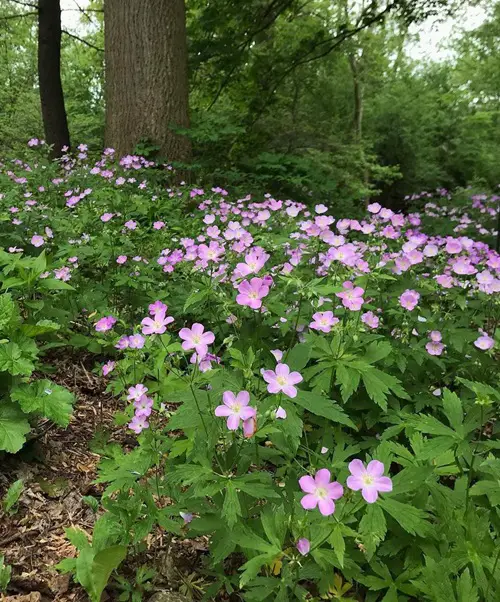
Botanical Name: Geranium maculatum
USDA Zones: 3-8
Wild geranium is a clump-forming weed with deeply cut and palmately lobed foliage. It often thrives in shady woodlands with humus-rich soil. The flowers of this plant are identified by five petals, which are usually pink or lavender but can also be purple or white.
You will often find honeybees, bumblebees, and beetles visiting the flower. Many bird species use its seeds as the major source of food, adding more pollinators to the plant.
10. Creeping Thyme
Botanical Name: Thymus serpyllum
USDA Zones: 4-9
Native to Europe, creeping thyme is a fragrant perennial perfect for creating a beautiful ground cover. Its purple flowers, which bloom in summer, attract honey bees and wild bees. Grow creeping thyme in full sun and well-drained soil for the best results.
Gardeners love growing this weed on raised beds, border edges, and window boxes, enhancing the overall aesthetics.
11. Lantana
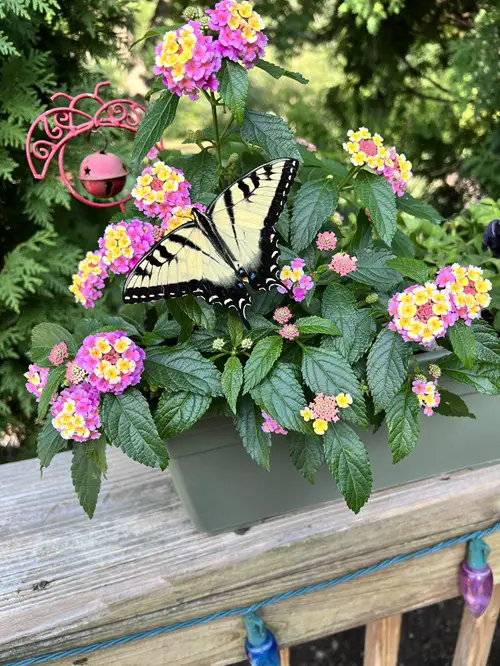
Botanical Name: Lantana camera
USDA Zones: 7-12
Lantana has showy flowers in various colors, such as golden, pink, and peach. When they appear in midsummer, these beautiful flowers attract various pollinators, but mostly butterflies and hummingbirds. Its tolerance to poor soil makes it an easy-to-grow plant, but you have to ensure that it gets ample sunlight.
You have to be watchful about this plant, as it can cause skin irritation to humans and is also toxic to livestock.
12. Celosia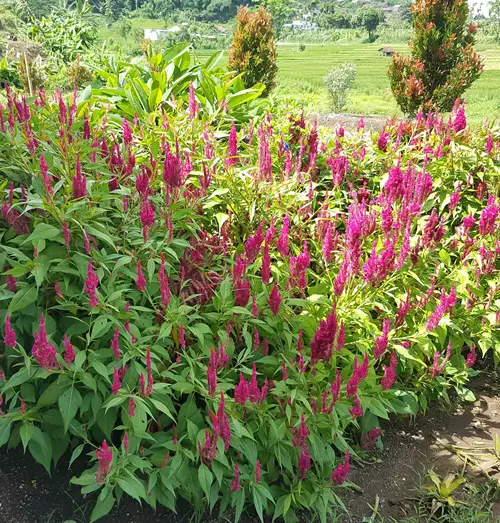
Botanical Name: Celosia argentea
USDA Zones: 10-11
This is an erect plant with alternate leaves and beautiful flowers in pink, white, and silvery hues. These feathery flowers are actually made of many tiny flowers that attract pollinators like bees and butterflies.
It requires moderate watering and grows well when planted in well-draining soil and full sun.
13. Butterfly Bush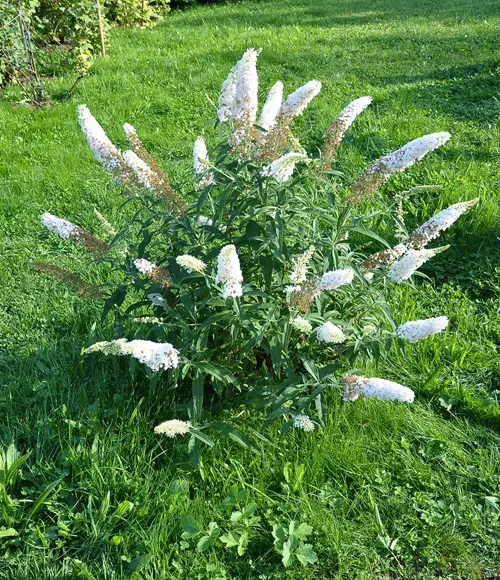
Botanical Name: Buddleja
USDA Zones: 5-10
As the name suggests, this plant is a magnet to butterflies, but you will witness significant hummingbird visits to it. Butterfly bush is a woody flowering plant with fragrant flower spikes in white, pink, and red hues. Once established, this plant is drought tolerant, making it easy to care for.
One more practical use of this plant is that it is perfect as a deer and rabbit-resistant option.


